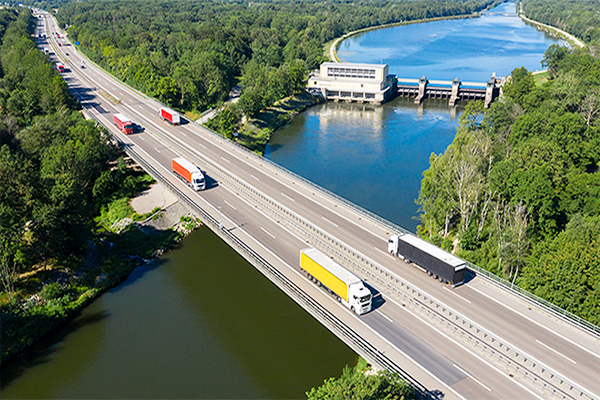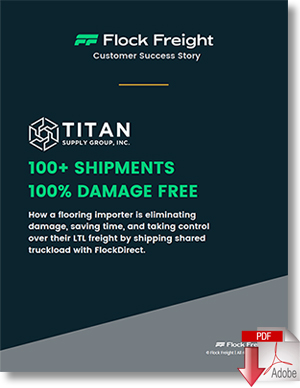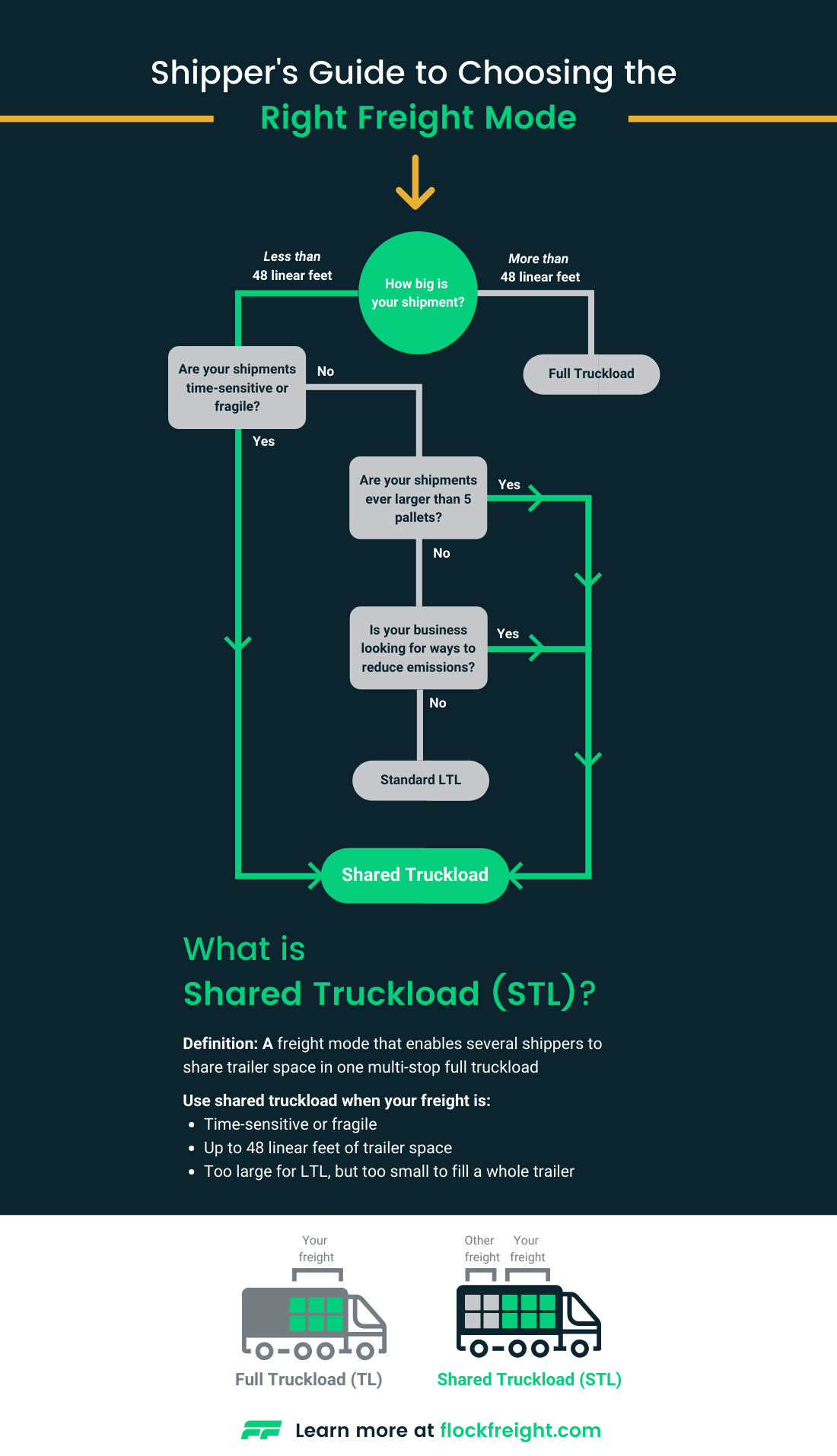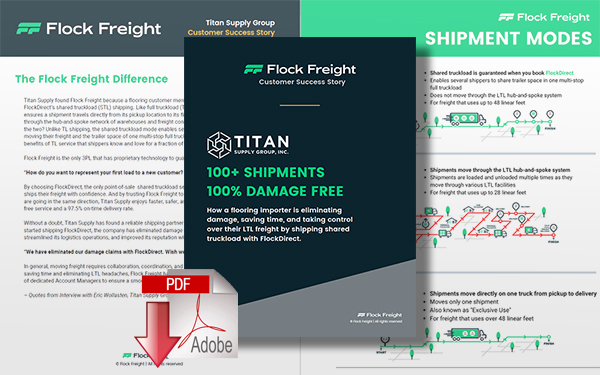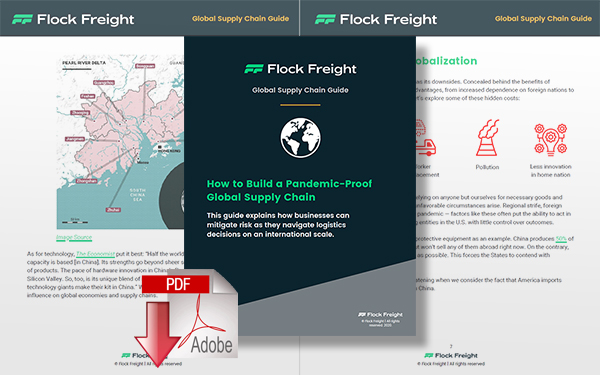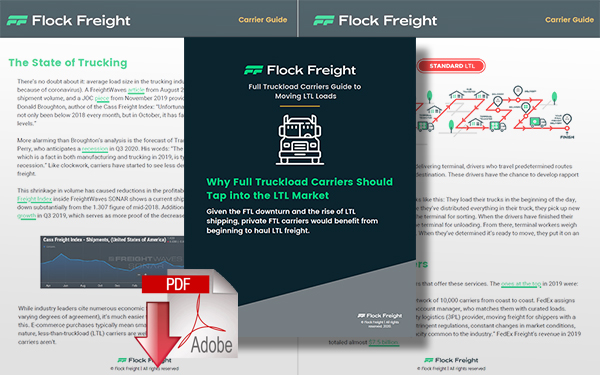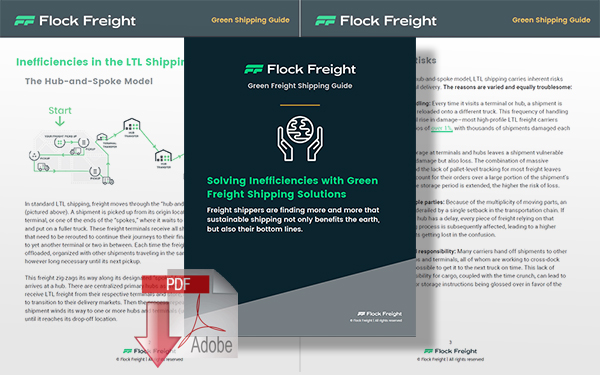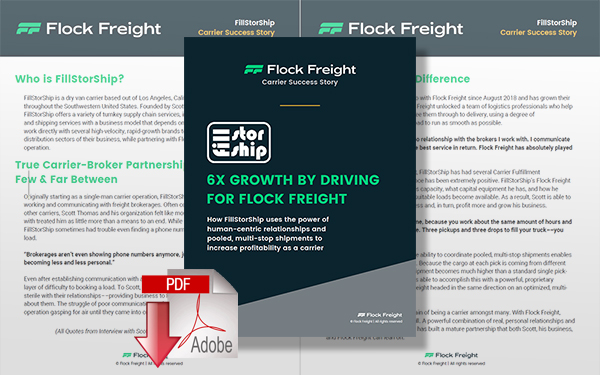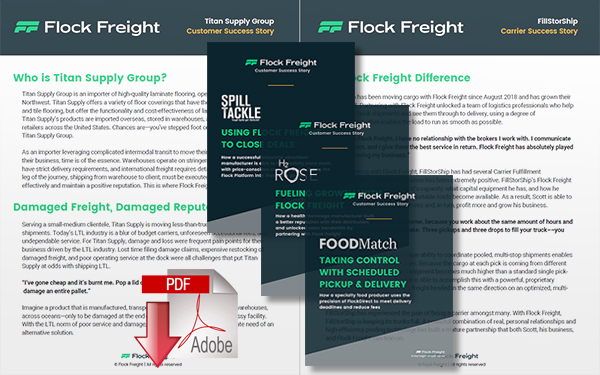Shared Truckload Services: Smarter Shipping for Optimizing the Modern Freight World

By removing constraints that pit shippers and carriers against each other, the shared truckload approach flips the outdated freight system on its head and proposes an innovative alternative.
Shared Truckload Service
Shared truckload (STL) service takes a familiar concept (sharing) and applies it to the trucking industry to help shippers and carriers collaborate to create optimal shipping outcomes and leverage supply chain efficiencies that promote corporate responsibility.
By removing constraints that pit shippers and carriers against each other, the shared truckload approach flips the outdated freight system on its head and proposes an innovative alternative.
Whether you’re a shipper or a carrier, you’re optimizing your company’s shipping logistics for today’s unpredictable landscape.
One decision you have to make is which freight mode to leverage: Shared truckload, full truckload (TL), or less-than-truckload (LTL).
A quick review of these shipping methods (opens new window):
- Shared truckload: A freight mode that enables several shippers to share trailer space in one multi-stop full truckload.
- Full truckload: A freight mode in which one truck moves loads from a single shipper directly from their pickup location to their drop-off location.
- Less-than-truckload: A freight mode that transports freight through distribution centers and terminals before delivering it to its final destination, using the hub-and-spoke model.
To determine which mode is right for your shipping purposes, it’s important to understand the role of load size in each one.
The industry typically uses weight, pallet quantity, linear feet, and freight class to categorize load size. Here’s the rundown:
- Shared truckload: Has no weight requirement and is ideal for one to 24 pallets that measure(s) up to 48 linear feet, regardless of freight class.
- Full truckload: Transports freight that weighs 15,000 or more pounds and includes more than 10 pallets on a full-size (48-foot) truck, regardless of freight class.
- Less-than-truckload: Hauls shipments that are less than two tons or six pallets and don’t fill a full-size truck to capacity, with careful attention to freight class.
The takeaway? A shared truckload is the most flexible mode. Not only does STL service accommodate truckload shipments of any weight, pallet quantity, and freight class, it moves them more efficiently than the other modes.
Wondering how it works? With shared truckload service, shipments that are traveling on a similar route move on the same truck. Freight travels directly from its pickup location to its destination - without passing through hubs or terminals. This process provides shippers, carriers, and the planet with more benefits than any other mode.
Reliable Transit and Cost Savings for Shippers
The shared truckload approach enables shippers to deliver damage-free loads on time and enjoy savings of 15-20% in the process. With shared truckload service, shippers share the deck space and cost of a full-size trailer and guarantee the efficiency of TL service in one fell swoop, delivering shipments intact and on time. (Shipments never leave the truck until delivered.) By keeping trucks full of freight from more than one shipper, the shared truckload mode offers full truckload service at a better rate.
Higher Earnings and Untapped Possibilities for Carriers
Shared truckload service benefits carriers, too, maximizing their profits. Because STL shipping empowers carriers to top off their trailers with loads from multiple shippers and pays more than standard one-pick, one-drop truckload freight, this freight mode incentivizes carriers to haul as many shipments as possible. Partnering with a freight broker that offers STL gives carriers the opportunity to boost revenue, especially when rates are low.
The STL method also supplies carriers with loads that they wouldn’t otherwise have access to. With STL transit, large and small TL carriers can choose from loads in the LTL market segment, where there’s little TL competition. Why not play in a space that increases your fleet’s chances of filling entire trucks? The environment will thank you for it.
Greener Shipping for the Environment
A shared truckload is the most efficient shipping mode, and you need only to look at its environmental impact for proof. For context, transportation (the movement of vehicles) is the number one source of emissions in America, emitting 1.9 billion tons of carbon dioxide every year. Moreover, freight trucks account for 23% of American transportation and 6.67% of the nation’s annual carbon emissions. Shipping freight comes at a cost to the planet. From an environmental perspective, it’s never been more important for the trucking industry to make the most of deck space and fuel.
Luckily, shared truckload service optimizes trailer space and moves freight hubless to eliminate wasted trips, reducing greenhouse gas emissions by up to 40%. This mode also:
- Removes the need for carbon-intensive and energy-consuming LTL hubs.
- Erases the environmental risks of remanufacturing and reshipping goods that had previously been damaged in the hub-and-spoke system.
A shared truckload is the only freight mode that’s designed to reduce the trucking industry’s carbon footprint.
Shared Truckload: The Best Way to Freight
In conclusion, driving partially full trucks is wasteful. The shared truckload mode mitigates this problem and provides a smooth experience for shippers and carriers. Shippers leverage the same TL service that they know and love for a fraction of the price, while carriers secure LTL freight to maximize profits. By avoiding the environmentally unfriendly hub-and-spoke system and grouping multiple shipments on one truck, shared truckload service fosters sustainability. These benefits are invaluable, especially at present.
Flock Freight is the only logistics provider that offers shared truckload shipping. In addition to providing the benefits above, Flock Freight’s shared truckload solution gives shippers control over their pickup and delivery dates and carriers a dedicated support team.
Related Resources
Titan Supply Customer Success Story: Shared Truckload
This customer success story details how a flooring importer eliminated damaged goods, saved time, and took control over their less-than-truckload freight by shipping shared truckload with FlockDirect. Download Now!
How to Build a Pandemic-Proof Global Supply Chain
This guide explains how businesses can mitigate supply chain risk, including the latest coronavirus pandemic, as they navigate logistics decisions on an international scale. Download Now!
Why Full Truckload Carriers Should Tap into the LTL Market
In this Full Truckload carriers Guide to moving LTL loads, we discuss the FTL downturn and the rise of LTL shipping, and how private FTL carriers would benefit from beginning to haul LTL freight. Download Now!
Solving Inefficiencies with Green Freight Shipping Solutions
In this green freight shipping guide, we describe how freight shippers are finding more and more that sustainable shipping not only benefits the earth but also their bottom lines. Download Now!
Flock Freight: FillStorShip Carrier Success Story
Learn how FillStorShip, a dry van carrier based out of Los Angeles, California, uses the power of human-centric relationships and pooled, multi-stop shipments to increase profitability as a carrier. Download Now!
Flock Freight: 3 Customer Success Stories
See how these three industry leaders, H2rOse, Spill Tackle, and FOODMatch, are using Flock Freight to streamline their supply chains. Download Now!
More Resources from Flock Freight
Related Article: Pooling Freight Is Helping Shippers Maximize Spend During the Coronavirus Pandemic
Article Topics
Flock Freight News & Resources
Wasted Space and Damaged Freight Overshadowed Favorable Conditions for Businesses in 2022 Top Issues Affecting Shippers Last Year 6 Lessons from CSCMP EDGE 2022 to Improve Shipping Freight & Supply Chain Inefficiencies Inefficiency - Not Just the Labor Shortage - Is Breaking Supply Chains Today’s Post-Pandemic Parcel Delivery Marketplace A Shipper’s Guide to Navigating Post-Pandemic 2022 Holiday Freight Shared Truckload Freight Increases Carrier Revenue by 20% More Flock FreightLatest in Transportation
FedEx Announces Plans to Shut Down Four Facilities The Two Most Important Factors in Last-Mile Delivery Most Companies Unprepared For Supply Chain Emergency Baltimore Bridge Collapse: Impact on Freight Navigating Amazon Logistics’ Growth Shakes Up Shipping Industry in 2023 Nissan Channels Tesla With Its Latest Manufacturing Process Why are Diesel Prices Climbing Back Over $4 a Gallon? More Transportation